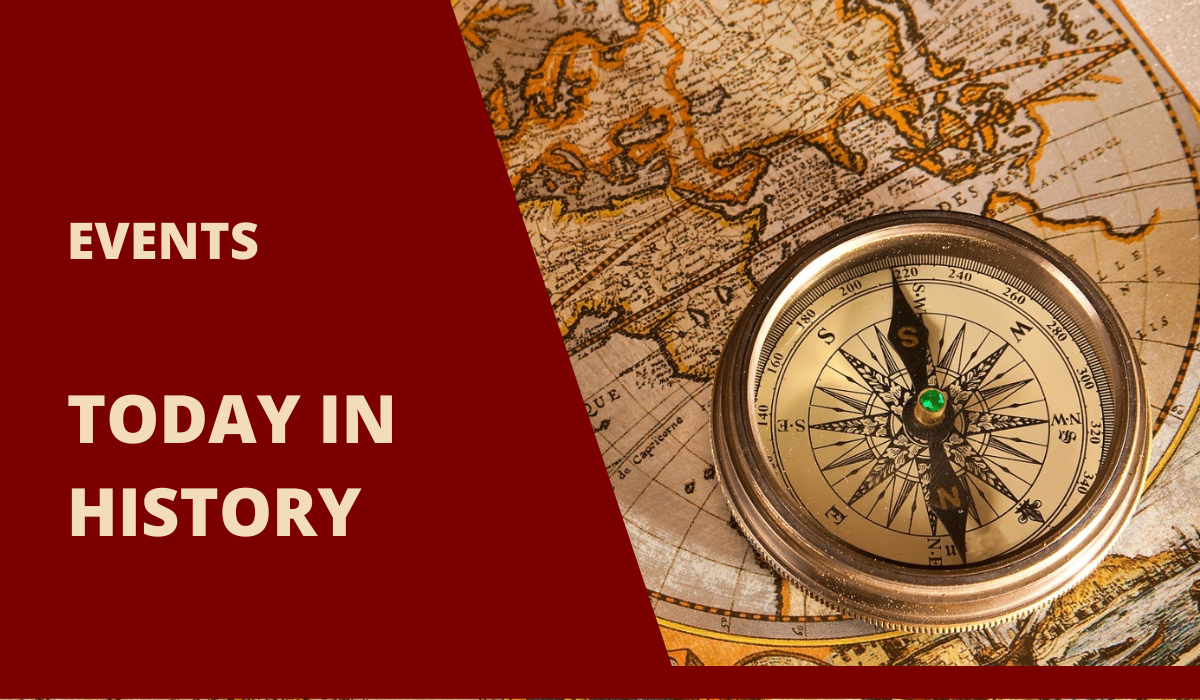Greetings, history enthusiasts! It’s 18th December, and I’m Laila, ready to take you on an intriguing journey through time. In this Article, we’ll be exploring the keyword ‘Today in History,’ uncovering remarkable events, stories, and facts that have shaped the world we live in today.
| Year | Event |
|---|---|
| 218 BC | Second Punic War: Battle of the Trebia – Hannibal’s Carthaginian forces defeat those of the Roman Republic. |
| 1271 | Kublai Khan renames his empire “Yuan” (元 yuán), officially marking the start of the Yuan dynasty of Mongolia and China. |
| 1622 | Portuguese forces score a military victory over the Kingdom of Kongo at the Battle of Mbumbi in present-day Angola. |
| 1655 | The Whitehall Conference ends with the determination that there was no law preventing Jews from re-entering England after the Edict of Expulsion of 1290. |
| 1777 | The United States celebrates its first Thanksgiving, marking the recent victory by the American rebels over British General John Burgoyne at Saratoga in October. |
| 1787 | New Jersey becomes the third state to ratify the U.S. Constitution. |
| 1793 | Surrender of the frigate La Lutine by French Royalists to Lord Samuel Hood; renamed HMS Lutine, she later becomes a famous treasure wreck. |
| 1833 | The national anthem of the Russian Empire, “God Save the Tsar!”, is first performed. |
| 1865 | US Secretary of State William Seward proclaims the adoption of the Thirteenth Amendment, prohibiting slavery throughout the USA. |
| 1878 | The Al-Thani family become the rulers of the state of Qatar. |
| 1892 | Premiere performance of The Nutcracker by Pyotr Ilyich Tchaikovsky in Saint Petersburg, Russia. |
| 1898 | Gaston de Chasseloup-Laubat sets the first officially recognized land speed record of 39.245 mph (63.159 km/h) in a Jeantaud electric car. |
| 1900 | The Upper Ferntree Gully to Gembrook, Victoria Narrow-gauge (2 ft 6 in or 762 mm) Railway (now the Puffing Billy Railway) in Victoria, Australia is opened for traffic. |
| 1916 | World War I: The Battle of Verdun ends when German forces under Chief of staff Erich von Falkenhayn are defeated by the French, and suffer 337,000 casualties. |
| 1917 | The resolution containing the language of the Eighteenth Amendment to enact Prohibition is passed by the United States Congress. |
| 1932 | The Chicago Bears defeat the Portsmouth Spartans in the first NFL Championship Game. |
| 1935 | The Lanka Sama Samaja Party is founded in Ceylon. |
| 1939 | World War II: The Battle of the Heligoland Bight, the first major air battle of the war, takes place. |
| 1944 | World War II: Seventy-seven B-29 Superfortress and 200 other aircraft of U.S. Fourteenth Air Force bomb Hankow, China, a Japanese supply base. |
| 1958 | Project SCORE, the world’s first communications satellite, is launched. |
| 1966 | Saturn’s moon Epimetheus is discovered by astronomer Richard Walker. |
| 1972 | Vietnam War: President Richard Nixon announces that the United States will engage North Vietnam in Operation Linebacker II, a series of Christmas bombings, after peace talks collapsed with North Vietnam on the 13th. |
| 1973 | Soviet Soyuz Programme: Soyuz 13, crewed by cosmonauts Valentin Lebedev and Pyotr Klimuk, is launched from Baikonur in the Soviet Union. |
| 1973 | The Islamic Development Bank is founded. |
| 1981 | First flight of the Russian heavy strategic bomber Tu-160, the world’s largest combat aircraft, largest supersonic aircraft and largest variable-sweep wing aircraft built. |
| 1999 | NASA launches into orbit the Terra platform carrying five Earth Observation instruments, including ASTER, CERES, MISR, MODIS and MOPITT. |
| 2002 | California gubernatorial recall: Then Governor of California Gray Davis announces that the state would face a record budget deficit of $35 billion, roughly double the figure reported during his reelection campaign one month earlier. |
| 2005 | The Chadian Civil War begins when rebel groups, allegedly backed by neighbouring Sudan, launch an attack in Adré. |
| 2006 | The first of a series of floods strikes Malaysia. The death toll of all flooding is at least 118, with over 400,000 people displaced. |
| 2006 | United Arab Emirates holds its first-ever elections. |
| 2015 | Kellingley Colliery, the last deep coal mine in Great Britain, closes. |
As you’ve seen, history is a treasure trove of fascinating tales and significant moments. Whether it’s a scientific breakthrough, a political milestone, a cultural revelation, or a gripping story of human resilience, ‘Today in History’ brings to light the events that have left an indelible mark on our world.
Before we wrap up this historical journey, let’s reflect on the importance of understanding the past. History isn’t just a subject for textbooks; it’s a source of inspiration, knowledge, and wisdom. By studying the triumphs and trials of those who came before us, we gain a deeper appreciation for the present and a better sense of direction for the future.
So, as we bid adieu to our excursion through time on 18th December, remember that history is alive, and its lessons are eternally relevant. Stay curious, keep exploring, and let the past be your guide to a brighter future.
Don’t forget to check back for more captivating ‘Today in History’ posts on this blog. The past is an open book, waiting for you to turn its pages and discover its many secrets. Until next time, happy time traveling!
